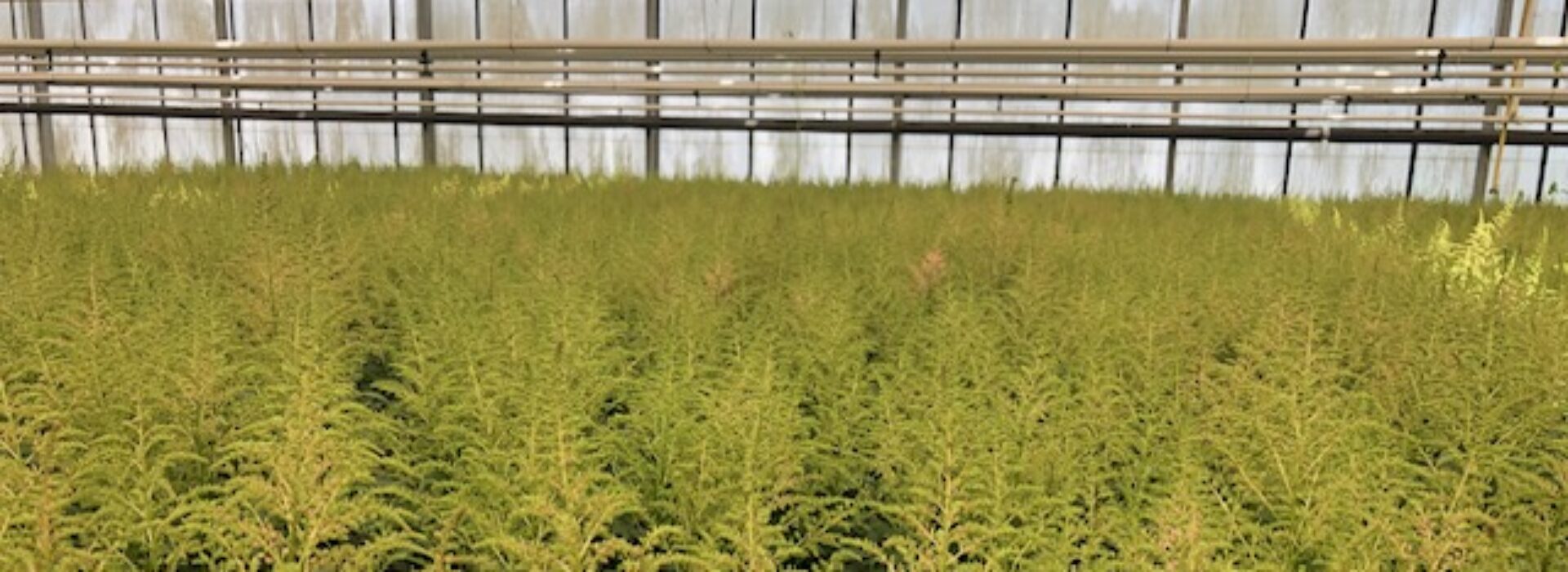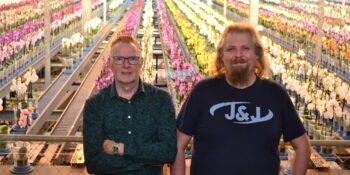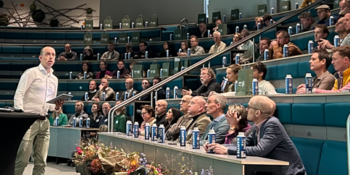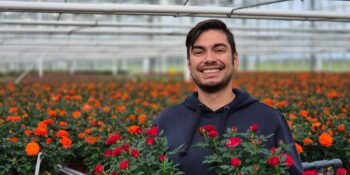A stroke of luck – that’s how Martien Olsthoorn describes the astilbes and pumpkins he and his wife grow. In spring, the greenhouse bristles with potted astilbes; in autumn, the nursery works its magic on value-added pumpkins. Both crops just so happen to thrive with minimal intervention and few crop protection products. These may seem like easy crops, but the Olsthoorn family consistently and deliberately opts for sustainability. That’s one of the reasons why the nursery became the first MPS-GreenerGrown company to achieve the maximum three stars by using only organic crop protection agents.
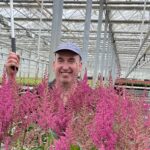
Martien Olsthoorn
The nursery that Martien Olsthoorn and his wife run today once started as his father’s farm. They later added outdoor flowers and a greenhouse, and the couple started combining potted astilbes in the spring with pumpkins in the autumn in 2003.
“Pumpkins are easy to grow organically, so going sustainable is the obvious move – that’s why we grow them without any chemicals whatsoever. Until 2009 we also had outdoor flowers, but this proved so difficult when it came to products that we decided to only grow astilbe in the greenhouse. We stopped using chemicals entirely in 2019,” Olsthoorn explains.
That’s possible because the astilbe is a particularly easy-going plant: it just needs a lot of water. The nursery doesn’t even spray its plants to prevent diseases like Rhizoctonia. “That does mean we accept a certain degree of waste.”
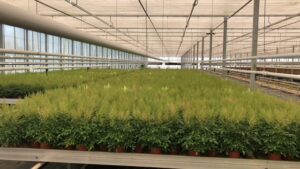 Chemical-free crops in demand
Chemical-free crops in demand
The nursery’s astilbes are not always entirely identical, and Olsthoorn was not sure how the market would respond at first. The astilbe is particularly popular in Scandinavia, where this shade-loving plant thrives, but it also has a dedicated following in the Netherlands. Martien Olsthoorn and his wife can often be found at Amsterdam’s Pure Market, where they see the plant’s popularity with their own eyes.
“We opened our stall at the Pure Market fifteen years ago after being introduced by Syntens. It was a real eye opener for us. Before, we had always found that buyers could be incredibly critical, but when I started apologising for a bad leaf at the Pure Market, the customers laughed and told me not to worry. Consumers are more interested in chemical-free products nowadays – it’s a real trend.”
Greening the world
Olsthoorn still gets great joy from his market stall. “We see that our products make people happy, and we’re in this industry to make people smile and green the world.
If you ask Olsthoorn, the industry could do a better job of communicating the unique contribution it makes. “We’re practically the only sector that actively makes parks and cities greener places. Without us, the world won’t become greener. I’m immensely proud of our industry – we grow the plants and trees that will continue to absorb carbon dioxide in parks, gardens and on green roofs for decades to come. The horticulture industry is at the very root of the luscious greenery around us.”
Three stars for sustainability
If one of the industry’s main challenges is to proudly communicate its green accomplishments, the nursery’s Three MPS-GreenerGrown stars will certainly help. “We’ll be using the stars on our packaging – because if customers want chemical-free products, they have to know where to find them.”
MPS still has its work cut out for it, Olsthoorn adds: “MPS is doing an excellent job when it comes to sustainability and they have helped the industry tremendously. They do have to be careful to avoid a jungle of stickers and need to communicate a clear-cut message to consumers. What’s more, the footprint calculations should also factor in carbon reductions once plants are planted to avoid suggesting that plants are no more sustainable than tiles, for example.”
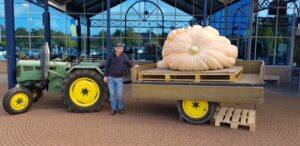 In the meantime, the Olsthoorn Family Nursery will continue to make every effort to grow pumpkins and astilbes as sustainably as possible. “We had an electric harvester built for us two years ago, and we were an early adopter of solar panels and gas-free technology. Perhaps more importantly, we have a different view of quality and accept more waste. That does mean that we have to discard the odd plant and have to spend more time on presentation. Fortunately, the MPS audit has confirmed that we are on the right path.”
In the meantime, the Olsthoorn Family Nursery will continue to make every effort to grow pumpkins and astilbes as sustainably as possible. “We had an electric harvester built for us two years ago, and we were an early adopter of solar panels and gas-free technology. Perhaps more importantly, we have a different view of quality and accept more waste. That does mean that we have to discard the odd plant and have to spend more time on presentation. Fortunately, the MPS audit has confirmed that we are on the right path.”
